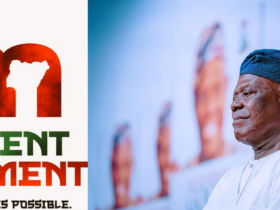Former vice president and People’s Democratic Party (PDP) presidential candidate Alhaji Atiku Abubakar told Bola Ahmed Tinubu that he can’t use privacy laws as an excuse to keep his academic records from the Chicago State University (CSU) from being made public.
Atiku said this in response to Tinubu’s objection to Magistrate Judge Jeffrey Gilbert’s order. He also said Tinubu’s argument was not well thought out or valid.
The former vice president claimed that after hearing from all sides, Justice Gilbert resolved all of Tinubu’s justifications for not adhering to the magistrate court’s legal order.
That same day, September 19, the court said that Atiku’s request for discovery was more important than Tinubu’s request for privacy protection under the law.
As one reason why Atiku’s request was turned down, Tinubu said that Judge Gilbert made a mistake when he told the CSU to release papers related to Tinubu’s diploma, transcripts, and admission letter, among other things.
Judge Gilbert, on the other hand, said that Atiku’s case has merit because it has to do with Tinubu’s eligibility for the 2023 presidential race, which he won.
Tinubu objected to the order and requested last Thursday that the Federal High Court, presided over by Judge Nancy Maldonado, delay it until Monday, September 25, when he could submit his formal objection.
Tinubu, among others, said that the order breaking his right to privacy and US law about the release of academic records was inappropriate at Monday’s hearing.
Under the Federal Educational Records and Privacy Act, 28 U.S.C. § 1232(g) (“FERPA”), Tinubu said that the discovery applicant’s requests are too invasive because educational records are private and cannot be shared.
But in his most recent move, Atiku said that Tinubu’s use of the law of privacy to stop the release of his academic records was not valid or important in this case.
Angela Liu, Atiku’s lawyer, replied that FERPA and similar state laws do not give people a right to privacy in school records on their own, and they cannot be used to avoid a court-ordered subpoena.
The applicant said, “Under FERPA, claiming a privilege or privacy interest is not possible; the law does not give individuals any enforceable rights.” They also said, “FERPA does not provide a privilege that prevents the disclosure of student records.”
Atiku also said that Tinubu couldn’t ask for protection when he “has put its educational records at issue, ECF 40 at 25–26 (explaining that Intervenor put his diploma at issue by submitting it to INEC, and Tinubu’s records have already been introduced into the Nigerian proceedings, including by Tinubu himself, and widely published in the media).”
Atiku also said that Tinubu had given the courts and the people access to his own educational records in different cases. He said that Judge Gilbert made the right decision when he said that the balance of the Intel discretionary factors weighs in favor of granting the discovery.








Leave a Reply